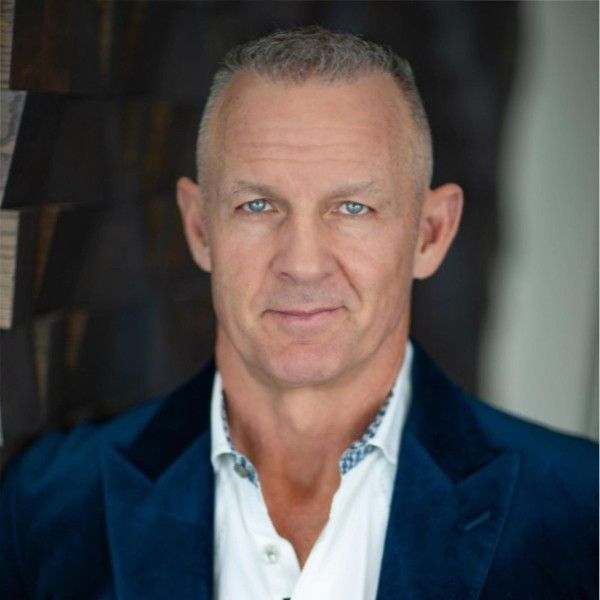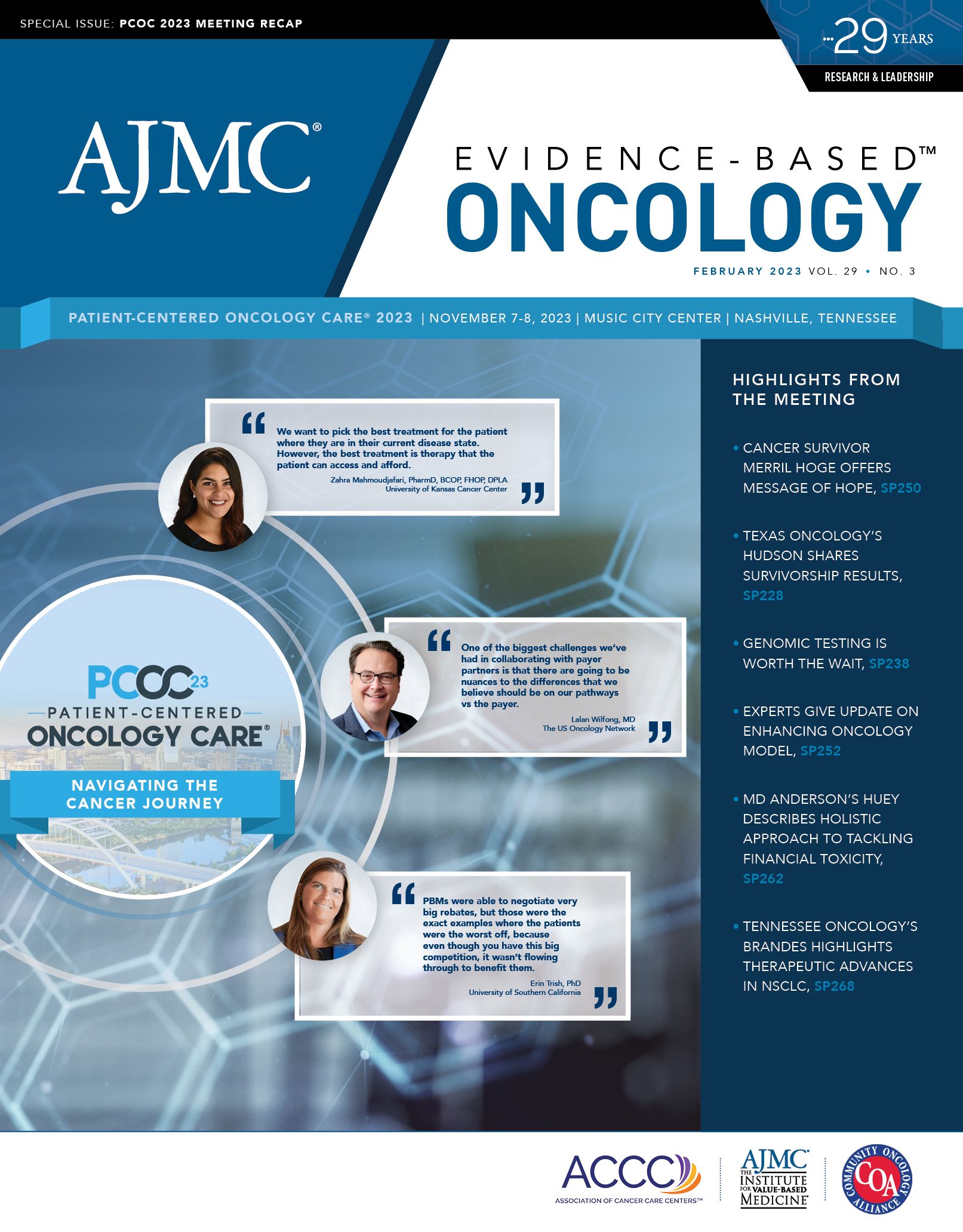- Center on Health Equity & Access
- Clinical
- Health Care Cost
- Health Care Delivery
- Insurance
- Policy
- Technology
- Value-Based Care
Merril Hoge Brings the Patient Perspective to PCOC 2023
The former NFL running back shared his story of overcoming cancer and encouraged an audience of oncologists, pharmacists, payers, and policy leaders to continue pushing to advance cancer treatment.
When former NFL running back Merril Hoge was faced with a diagnosis of non-Hodgkin lymphoma in 2003, he initially thought his lifelong mantra, “find a way,” might not apply. Throughout injuries in his 8 seasons in the National Football League with the Pittsburgh Steelers and the Chicago Bears, there was always a clear-cut road to recovery, even when repeated brain injuries necessitated his retirement from the NFL.
Merril Hoge | Image: SportGait for LinkedIn

But with his cancer diagnosis, doctors informed him there were no guarantees that treatment would work. Despite his 22 years of playing football—a sport where injuries are virtually inevitable at any level of play—it was the first time a doctor had told him there was no guaranteed solution.
Through his own drive and encouragement from his 9-year-old daughter, who upon hearing his diagnosis whispered, “Dad, find a way,” Hoge approached chemotherapy the same way he approached his NFL career. Despite the taxing nature of chemotherapy sessions, he stuck to his daily routines, even playing in the basketball league he had been participating in before his diagnosis.
The treatment worked and Hoge was cancer free 6 months later. Hoge would later face yet another battle in open-heart surgery, but his cancer journey changed the way he viewed life and represented the most uncertain challenge he had ever faced.
“I now live with a perspective I didn’t have before,” Hoge said. “And that perspective is all I would have missed.” His children are now 29 and 27 years old, and he has 4 grandchildren whom he never would have known had his treatment not been effective.
As he addressed a room full of cancer care stakeholders during his keynote address at the Patient-Centered Oncology Care meeting in Nashville, Tennessee, Hoge thanked the crowd for the work they do in advancing oncology care and thereby changing the lives of both patients and their loved ones. His talk aligned with the meeting’s central theme, “Navigating the Cancer Care Journey,” which the roster of featured panelists and speakers reflected throughout the 2-day meeting.
In life, Hoge said he has found that 2 values always emerge in conversations about what makes people successful and, more importantly, peaceful. For the latter, he explained, one must be confident that they are doing all they can to be their best and work toward their goals.
Those values, he said, are integrity and the ability to continuously self-evaluate, both themes that oncology practitioners and researchers can glean insight from.
“We will all be exposed for our integrity at some point, and it’s better to be exposed for having it than not having it. Today I’m talking about self-integrity, which leads me to No. 2: the ability to self-evaluate, or the ability to open oneself up and challenge yourself,” Hoge said. “Ask questions like, ‘Are you doing your part? Are you getting everything out of your God-given ability? Is there more you can be doing? Should we change something?’”
His message holds true in the field of oncology, where integrity in research, care delivery, and policy-level initiatives is paramount to helping patients experience the best possible outcomes of their disease. It is a field where asking questions often and thoughtfully drives care forward, and recent years have seen much progress resulting from questions around clinical topics and care delivery.
Change is an ongoing theme in the oncology space, particularly among those gathered in Nashville for PCOC, which centers on the idea of improving care for patients both in terms of therapeutics and the logistics of treatment.
In closing, Hoge once again thanked the crowd.
“What you do matters. You affect lives. You save lives. That’s a powerful thing. I don’t think there’s any greater thing you can have than when you service people like that, and that’s what you do, so I want to thank you for doing that,” Hoge said. “Indirectly, you save lives, and you don’t even realize it. Indirectly, groups like this are why I’m standing here and grateful to be here.”

